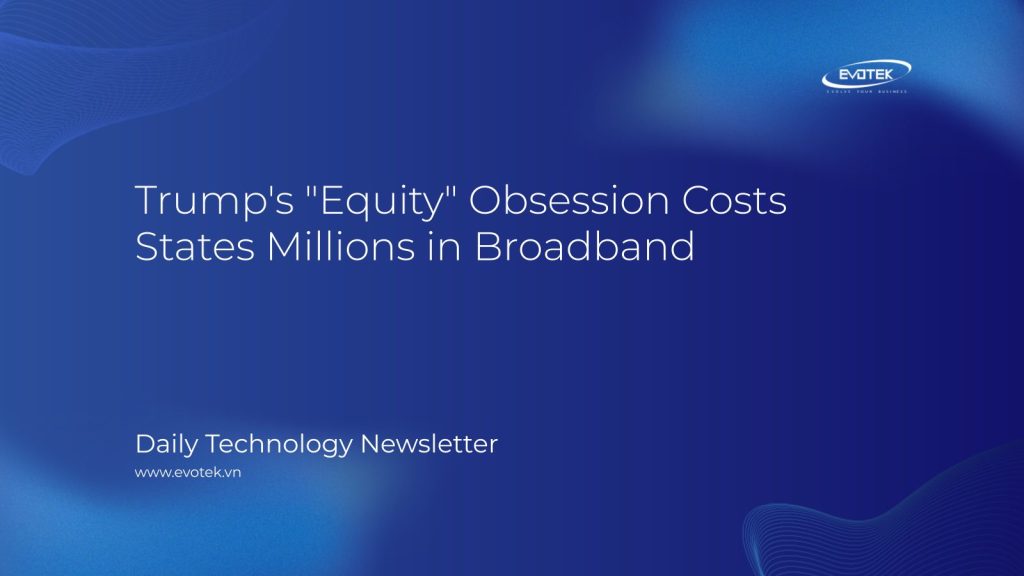A misguided interpretation of the word “equity” by the Trump administration has led to the cancellation of millions of dollars in rural broadband investment across several states.
Last week, former President Trump’s administration moved to kill the $2.75 billion Digital Equity Act, part of the infrastructure bill. This act was designed to provide broadband grants and digital literacy programs to underserved communities.
The decision is already impacting states like South Dakota, which is cancelling $5 million in planned broadband upgrades. These funds were intended to bring affordable internet access to rural, low-income, and tribal communities.
Representative Erik Muckey criticized the administration’s actions, stating, “This crusade to eliminate any funding that has anything to do with even the word equity… is just a farce.”
Vermont and other states are following suit, halting fiber expansion and digital literacy initiatives crucial for employment, education, and healthcare access in rural areas.
Critics argue that this is not about saving money, but rather a politically motivated attack on programs that broadly benefit all Americans, including Trump’s own supporters.
The move has been met with silence from Republicans and “free market” think tanks, who previously opposed net neutrality regulations claiming it would stifle broadband investment.
The Digital Equity Act aims to ensure everyone has access to decent broadband, especially in areas where telecom monopolies have failed to provide affordable and reliable service.
The current administration’s policies are seen as exacerbating the digital divide, pushing people towards expensive and unreliable options like Elon Musk’s Starlink.
While Democrats have had their shortcomings in telecom policy, initiatives passed in 2021 have driven affordable fiber access to underserved areas.
Critics argue that the corporate media often downplays the role of unpopular policies in hindering progress and widening the digital divide, particularly in rural communities.

 日本語
日本語 한국어
한국어 Tiếng Việt
Tiếng Việt 简体中文
简体中文